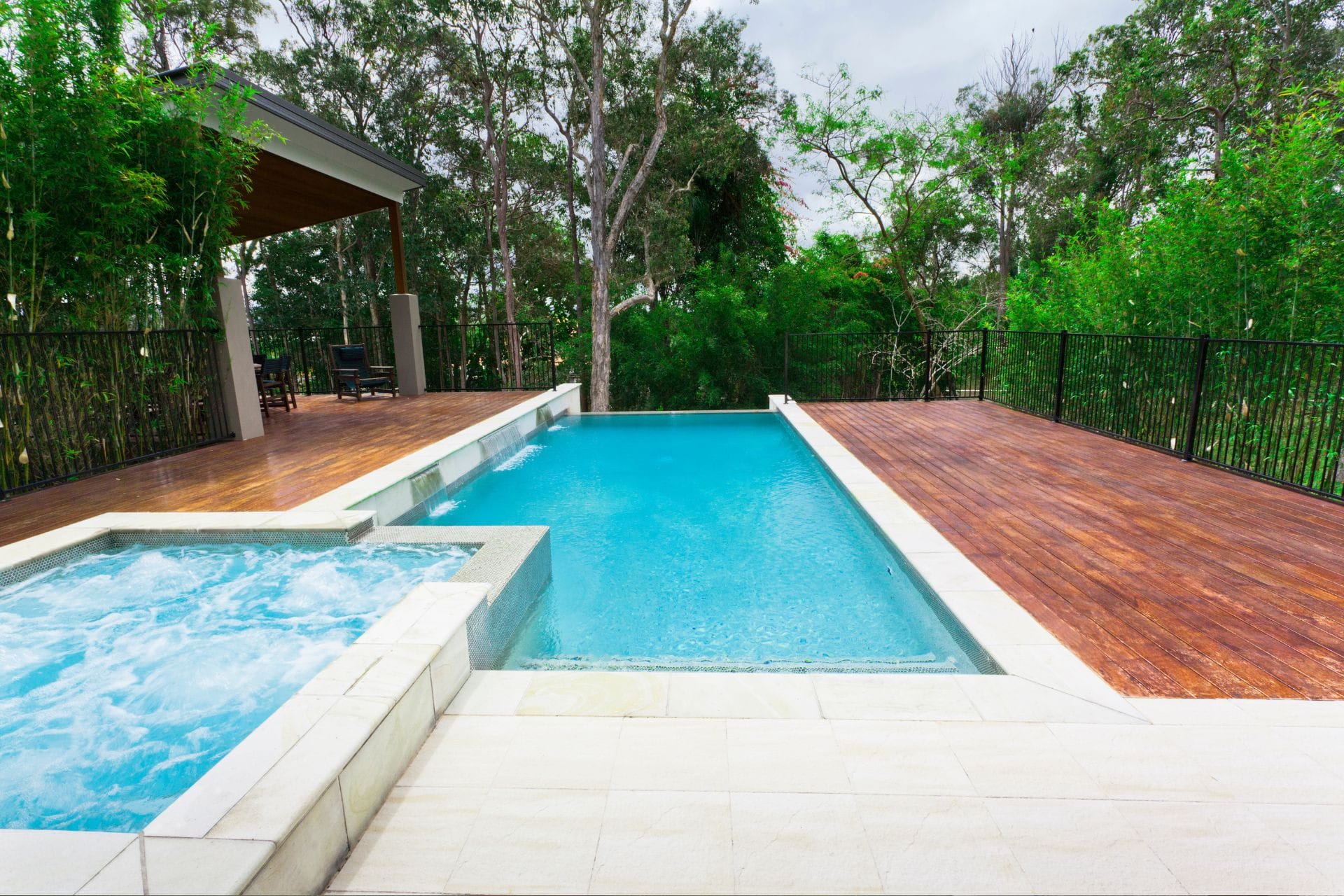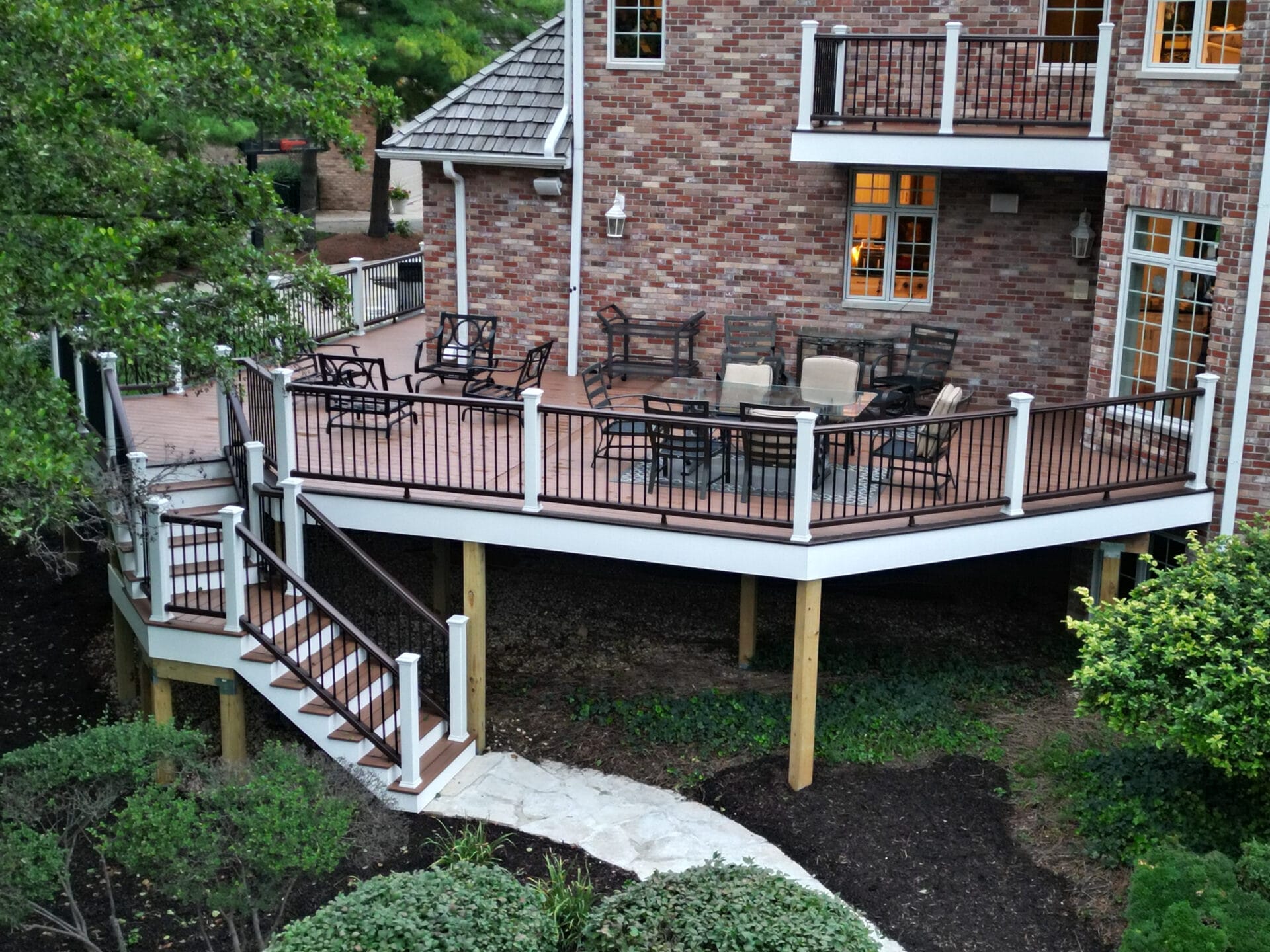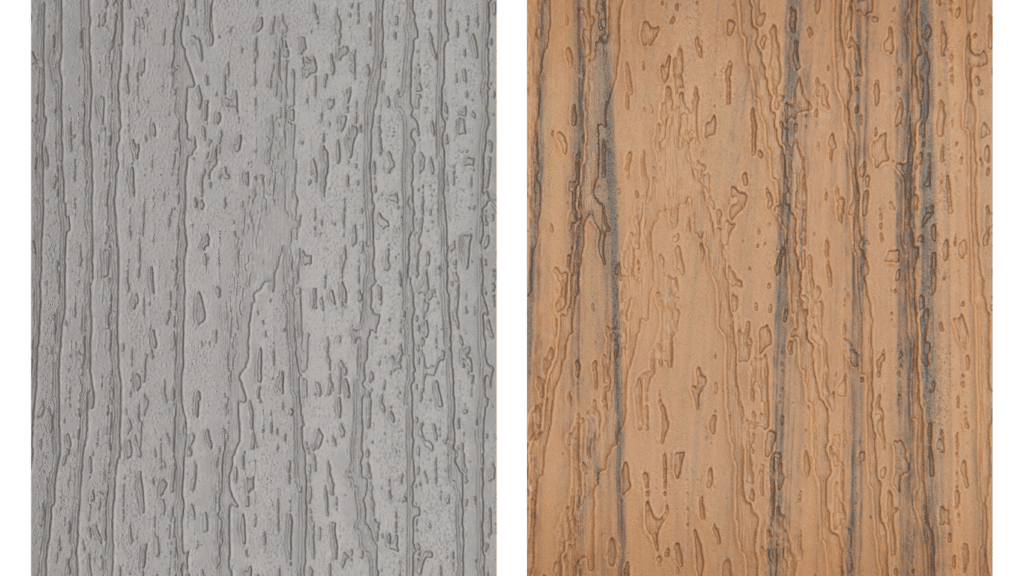

Incorporating a composite wood pool deck can elevate the aesthetics and functionality of your outdoor space. This material is designed to withstand harsh weather conditions, including intense sun, rain, and even pool chemicals, without warping, cracking, or fading
In this article, we will explore the key considerations for choosing the perfect pool deck material, focusing on concrete, wood, and composite options. Each material offers unique benefits and maintenance requirements, allowing you to create a personalized pool decking that suits your design preferences and lifestyle needs.
Key Takeaways
Concrete pool decks provide a sleek and durable option for your pool area but require regular maintenance to withstand the climate in the Chicagoland area.
Wood pool decks offer a timeless and natural charm, but demand higher maintenance and may be less weather-resistant.
Composite pool decks, made from wood fibers and plastic materials, provide a low-maintenance and durable alternative with resistance to warping and rotting.
When choosing a pool deck material, consider the aesthetics, durability, and maintenance requirements that align with your specific needs and design preferences.
Transform your swimming pool deck into an elegant and functional space by selecting a pool deck material that complements your pool, landscape, and lifestyle.
Choosing the Perfect Pool Deck Material
Concrete Pool Decks
When considering a pool deck for your home, concrete offers a versatile and durable option. Concrete pool decks are known for their strength and stability, providing a solid surface for outdoor furniture and pool equipment.
However, homeowners should be aware of the maintenance that comes with this choice. Pool decking made from concrete requires resealing to prevent long-term cracking, and safety should be a priority as these surfaces can become slippery when wet. To mitigate this, non-slip additives can be incorporated into the concrete mix.
Concrete’s heat retention properties should also be taken into account. In areas with intense sunlight, concrete can feel quite hot underfoot. Opting for lighter colors can help reduce heat absorption, making the swimming pool deck more comfortable during sunny days.
Wood Pool Decks
Wooden pool decks offer a natural charm and warmth that can enhance the aesthetic of any home pool area. Often crafted from materials like redwood, cedar, or pressure-treated pine, these decks are visually appealing and provide a cooler surface underfoot in hot weather.
However, homeowners should be aware of the maintenance that wood decks require. To maintain their beauty and functionality, this material requires regular cleaning to prevent rot, warping, and weathering. Despite their allure, they may not be as durable or moisture-resistant as other decking materials, which is a consideration for those looking for longevity in the Chicagoland area’s climate.
When considering a wood pool deck, it’s important to factor in both the initial investment and the long-term maintenance costs. According to recent data, the cost of wood vs composite pool deck for an above-ground pool ranges significantly, indicating that budgeting for both upfront and ongoing expenses is essential.
Composite Pool Decks
Composite decking, a blend of wood fibers and plastic materials, offers a modern solution for poolside lounging. It combines the natural beauty of wood with the durability and low maintenance of synthetic materials. Composite decks are known for their longevity and resistance to fading, staining, and scratching, making them an ideal choice for a pool deck that endures frequent exposure to water and foot traffic.
However, it’s worth noting that composite decking can be more expensive upfront than other materials. But for homeowners looking for a balance between aesthetics and functionality, composite pool decks are a compelling option.
The table below summarizes the key comparisons of concrete, wood, and composite:
|
Material |
Initial Cost |
Maintenance |
Durability |
Aesthetic |
|
Concrete |
Low |
Medium |
High |
Low |
|
Wood |
Medium |
High |
Medium |
High |
|
Composite |
High |
Low |
High |
High |
In conclusion, a composite wood pool deck is an excellent investment for those seeking a stylish, durable, and low-maintenance option for their outdoor retreat. With its blend of beauty and practicality, a composite wood pool deck significantly enhances the value and enjoyment of your home’s outdoor space.
Conclusion
Choosing the perfect pool deck material is a crucial element in creating an appealing, functional, and comfortable outdoor oasis for your home in the Chicagoland area. As you consider the various materials, explore each material catered to your local climate and unique lifestyle, and consider how these various pool deck options align with your specific design preferences, budget, and maintenance requirements.
By weighing the pros and cons, you can make a confident decision to create a beautiful and functional swimming pool deck that enhances your home’s outdoor space and delivers lasting enjoyment.
Frequently Asked Questions
Are pool decks expensive?
Yes, pool decks can be expensive, with the average cost ranging from $3,000 to $12,000 depending on materials, size, and design. The price variation is due to choices in materials (concrete, pavers, wood, or composite), the complexity of the design, and labor costs. Premium materials and custom designs can significantly increase the overall cost.
What color should a pool deck be?
A pool deck should ideally be a light color to reflect sunlight and minimize heat absorption. Lighter colors not only help keep the surface cooler underfoot in sunny conditions but also complement the pool’s water, enhancing the overall aesthetic appeal of the pool area.
What is the minimum size for a pool deck?
The minimum size for a pool deck depends on the pool size and intended use, but a general guideline is at least 8 to 10 feet in width around the pool perimeter. This allows enough space for lounging, walking, and safety around the pool, ensuring users have comfortable access and room for poolside furniture.
How tall should a pool deck be?
A pool deck should be level with the top of the pool for above-ground pools, facilitating easy entry and exit. For in-ground pools, the deck is typically at ground level surrounding the pool. The height should be designed for safety and ease of use, ensuring it meets any relevant codes or regulations.
Does chlorine damage pool decks?
Yes, chlorine can damage decking materials over time. Chlorine, used as a disinfectant in pool water, is a harsh chemical that can cause fading, drying out, and the eventual breakdown of certain decking materials, especially wood. It can strip natural oils from wood decking, leading to cracks, warping, and splintering. For

